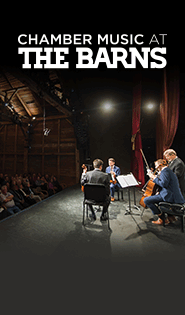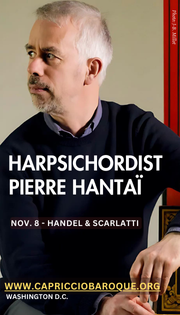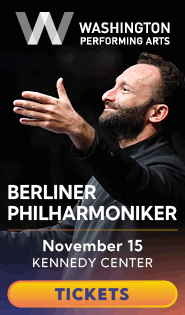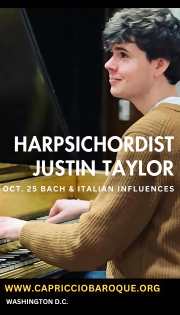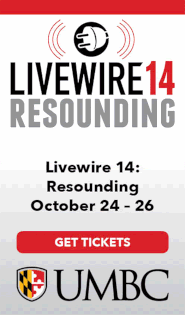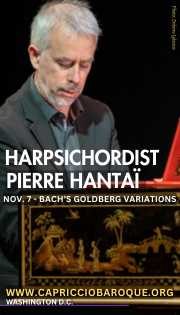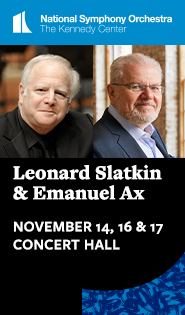Horns stand out in Apollo Orchestra’s season opener
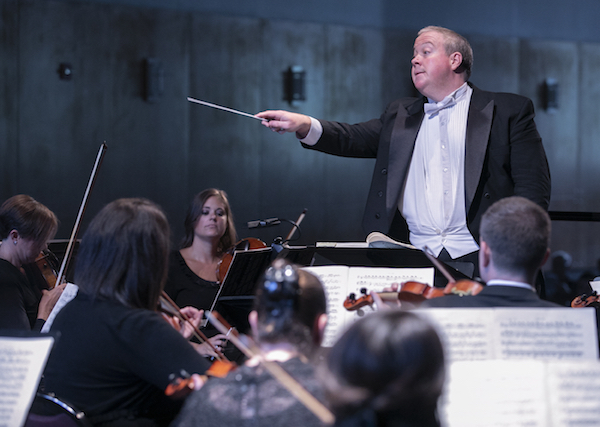
Stephen Czarkowski conducted the Apollo Orchestra Saturday night at Georgetown Visitation Preparatory School. Photo: Bruce Boyajian
No orchestra is really about making a profit. Even so, the Apollo Orchestra, an ensemble that distributes seats to all concerts free of charge, is a rare bird.
Music director Stephen Czarkowski opened the group’s ninth season Saturday afternoon with a quirky program performed in the auditorium of Georgetown Visitation Preparatory School. In brief comments he acknowledged the ongoing generous support of the Downing Family Foundation.
The orchestra is a mixture of young players, who are recent graduates of music programs, and older professionals. The sound of the ensemble varied from section to section and piece to piece. Rhythmic solidarity was shaky in the more challenging sections of Stravinsky’s 1919 Firebird Suite; in the “Firebird Dance” and the “Infernal Dance of Kashchei” intonation wavered out of line, especially in the cello solos and other low strings.
Crucial horn solos were rock solid, as in the lead-in to the “Finale”; but the oboe went sour in the gentle “Berceuse,” failing to match the suave playing of the bassoon. While the climaxes all hit the mark, crisply coordinated by Czarkowski’s emphatic gestures, Stravinsky’s challenge to any orchestra revealed more fault lines than strengths.
In a respectful hat tip to their hosts, the Apollo partnered with the Georgetown Visitation Preparatory School Chorus for one short item. Cor Jesu, a Latin hymn by Fr. Raphael Adams, serves as the school’s alma mater. The girls of the choir sang the piece with sweet and devoted simplicity, prepared by director Marika Countouris, in an orchestral arrangement by former faculty member Michael O’Brien.
Mario Castelnuovo-Tedesco wrote his Guitar Concerto No. 1 in 1939 for Andrés Segovia, the legendary guitarist who inspired the composer to create a vast amount of music for the instrument. The style of the piece is decidedly neoclassical and easy on the ears, reflecting the sort of music the Italian composer brought to his Hollywood film scores after emigrating to the United States around this time.
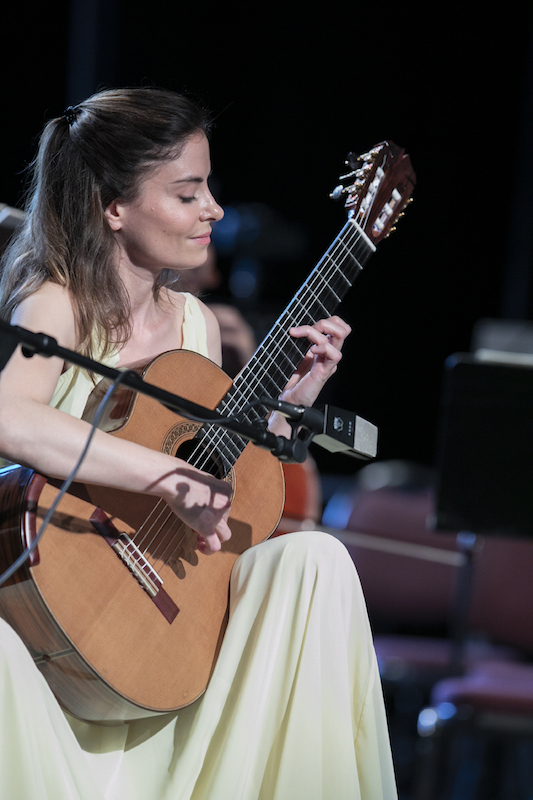
Ana Vidović performed Mario Castelnuovo-Tedesco’s Guitar Concerto No. 1. Photo: Bruce Boyajian
Even with the reduced orchestration of the piece and in a smaller hall, soloist Ana Vidović played with amplification. The Croatian guitarist, a graduate of Peabody Conservatory in Baltimore, favored the delicate side of her instrument, taking advantage of the microphone to pick up tiny details. She held the stage most convincingly in a solo encore, “Asturias” by Spanish composer Isaac Albéniz.
Unfortunately, the smaller numbers of musicians did not help the ongoing intonation issues, and orchestra and soloist did not always agree about tempo in the outer fast movements. That discrepancy may have caused a momentary confusion in the first movement, when the orchestra appeared to miss an entrance.
The group’s performance of Dvořák’s Eighth Symphony had more rough edges than one would want, but the brass sections, particularly the horns once again, were burnished. This made the exciting coda to the first movement, for example, a highlight, while the exposed bird-like flute and woodwind sections in the second movement were not. Czarkowski went for big, bold strokes in his interpretation, making the more heroic parts of the slow movement quite exciting.
The balance of tempi between the third and fourth movements is difficult to get right. Czarkowski went for a flowing single beat per measure in the charming third movement, but that made the contrasting Molto vivace sound not that much brighter or faster. The best playing of the program came in the brash finale of this symphony, from the crisp opening fanfare in the trumpets, to the gorgeous main theme in the cellos and the woodsy bellow of the horn in the heraldic fast sections.
In an improvised encore, the orchestra played a rousing Happy Birthday for Apollo’s president and principal benefactor, Robert B. Downing.
Violinist Cho Liang Lin joins the Apollo Orchestra 7:30 p.m. October 12 at Bethesda’s Church of the Little Flower. apolloorchestra.com
